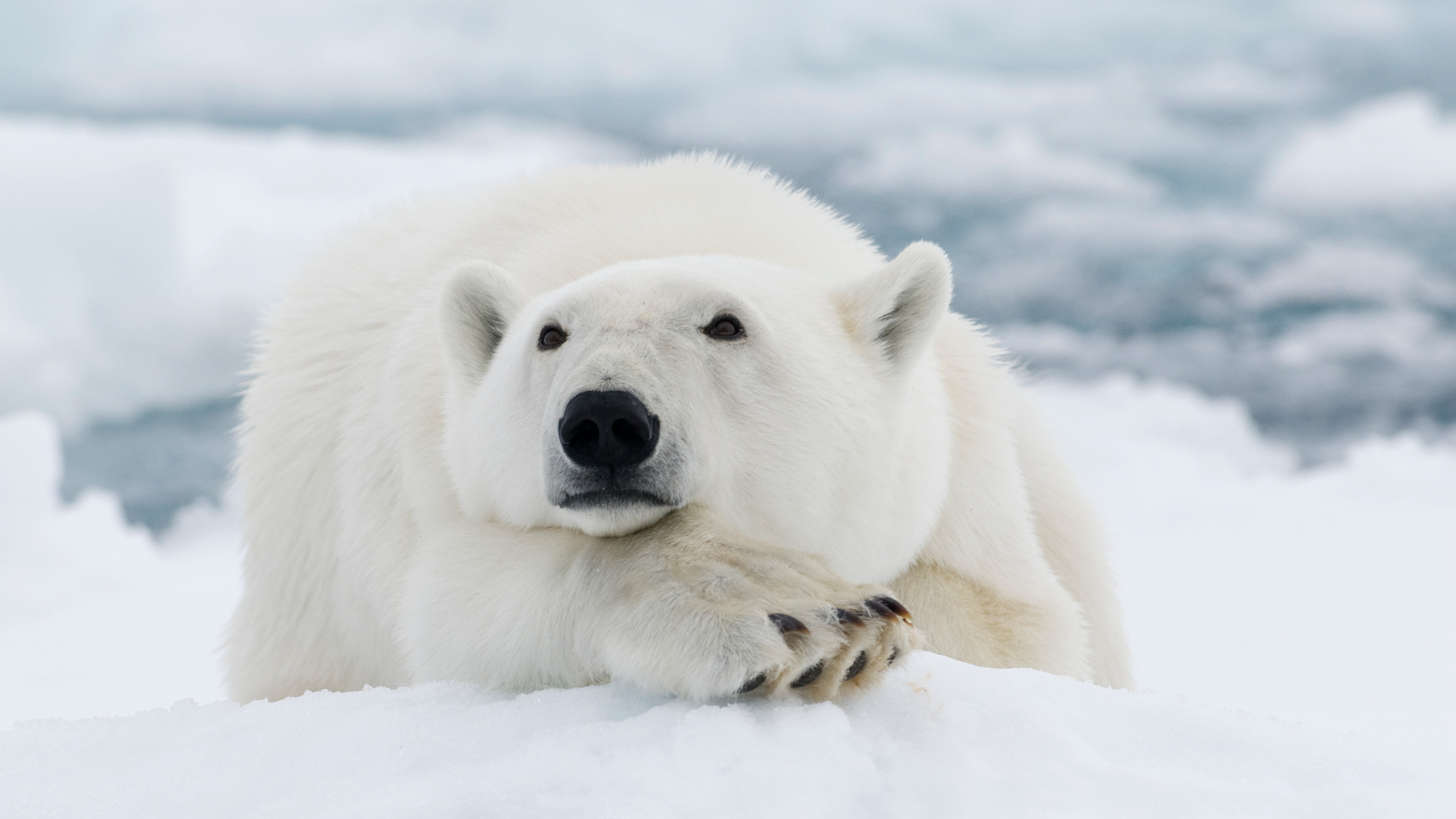Found in the Arctic, polar bears are the largest bears in the world and have no natural predators. The polar bear’s Latin name, Ursus maritimus, means “sea bear.” Polar bears are also known as white or great white northern bears.

Polar bears spend a lot of time on sea ice or in the ocean and can sustain a swimming pace of six miles per hour by paddling with their front paws and holding their hind legs flat like a rudder. Polar bears have white fur that is water-repellent and a thick layer of body fat that keeps them dry and warm.
Polar bears spend the majority of their time hunting for food. They primarily eat seals due to their high-fat content. Male polar bears will sometimes fight one another for weeks for the right to mate with a female bear which often leads to death or injury. Injuries sustained in these fights can become infected or make it difficult for the bear to hunt leading to starvation and death.
The word Arctic is derived from the Greek árktos which means “of the bear”. It refers to Ursa Major, a constellation of stars known as the Great Bear. While unviewable in Antarctica due to its position in the Southern Hemisphere, this gave it the name “anti-Bear” or “of no bear”.
Sources
Britannica, T. Editors of Encyclopaedia (2022, September 23). polar bear. Encyclopedia Britannica. https://www.britannica.com/animal/polar-bear
Veroutsos, E. (2022) What Are The Origins Of The Names Arctic And Antarctica?, World Atlas. WorldAtlas. Available at: https://www.worldatlas.com/articles/what-are-the-origins-of-the-names-arctic-and-antarctica.html (Accessed: November 29, 2022).




